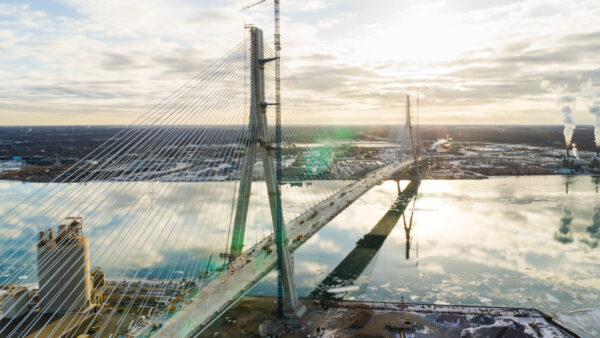The Australian state of Victoria has leased the port of Melbourne for $7.3bn (A$9.7bn) to a consortium led by the Queensland Investment Corporation (QIC), which also includes a Chinese sovereign wealth fund.Â
I think we’ve been very lucky in terms of timing. We couldn’t have picked a better time to go to the market– Tim Pallas, Victorian government treasurer
The sale price agreed was A$3.9bn higher than the original estimate for the deal, and was greeted by Daniel Andrews, the premier of Victoria, as “a A$9.7bn vote of confidence in the Victorian economy”.
The sale was agreed despite a decision by the federal government last month to veto a deal that would have transferred ownership of 50.4% of New South Wales’ electricity grid to two Chinese companies.
That decision provoked an angry reaction from China’s Commerce Ministry, which said: “This kind of decision is protectionist and seriously impacts the willingness of Chinese companies to invest in Australia.”
It also follows the decision of Northern Territories to sell a 99-year-lease in the Port of Darwin to a Chinese-owned company for $361m. This prompted the US government to express concern that the Chinese presence could be used to “facilitate intelligence collection on US and Australian military forces stationed nearby”.
Who owns Melbourne now?
The Lonsdale Consortium, which will now run Australia’s busiest port for 50 years, consists of QIC, which is owned by the government of Queensland, the federal government’s Future Fund, Global Infrastructure Partners (GIP), a New York-based private equity fund, and OMERS, the Canadian province of Ontario’s local government pension fund.
A GIP subsidiary will own 40% of the shares in the port and the other consortium members will each own 20%.
Half of the GIP entity belongs to China Investment Corporation Capital (CIC Capital), a $200bn sovereign wealth fund set up to invest in international mining and infrastructure projects. The remainder belongs to NTS, a Korean pension fund, and other investors.
QIC will also be investing money on behalf of US pension funds.
The high price of the lease came as the result of competitive bidding between Lonsdale and a rival consortium led by Industry Funds Management, a company that invests capital on behalf of 29 pension funds around the world.
Tim Pallas, the Victorian government treasurer, said the higher-than-expected price was partly the result of good luck. He told reporters: “I think we’ve been very lucky in terms of timing. We couldn’t have picked a better time to go to the market.”
Mr Pallas said in a statement: “The strength of this result underlines the continued high performance of the Victorian economy – the fastest growing in the country.
“Leasing the port reinforces Victoria’s position as the freight and logistics capital of Australia and will make a great port even better.”
The deal is expected to reach commercial close on 31 October.
Image: Melbourne Port is Australia’s largest for cargo and containers (AMSA)
Further Reading:










